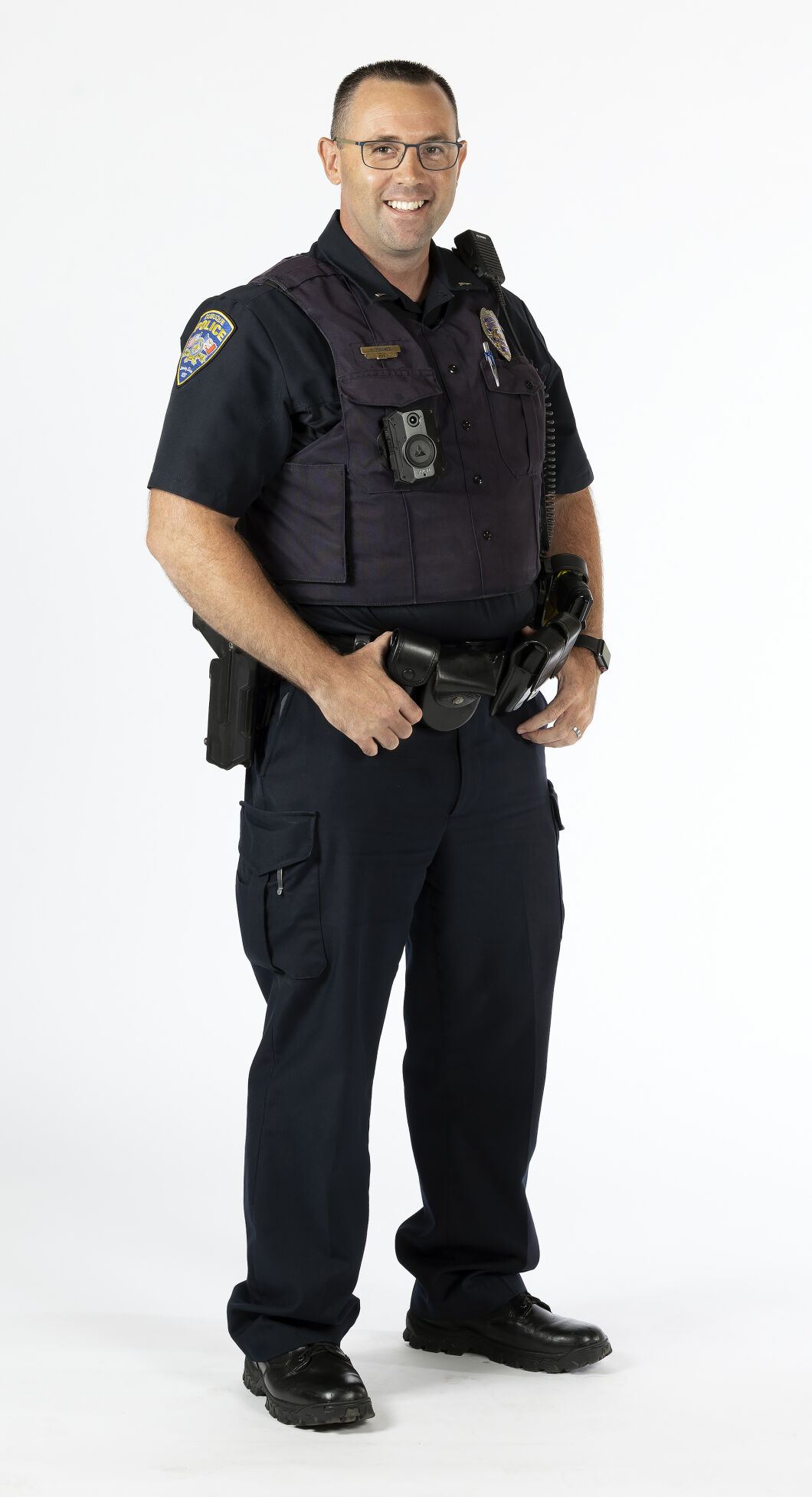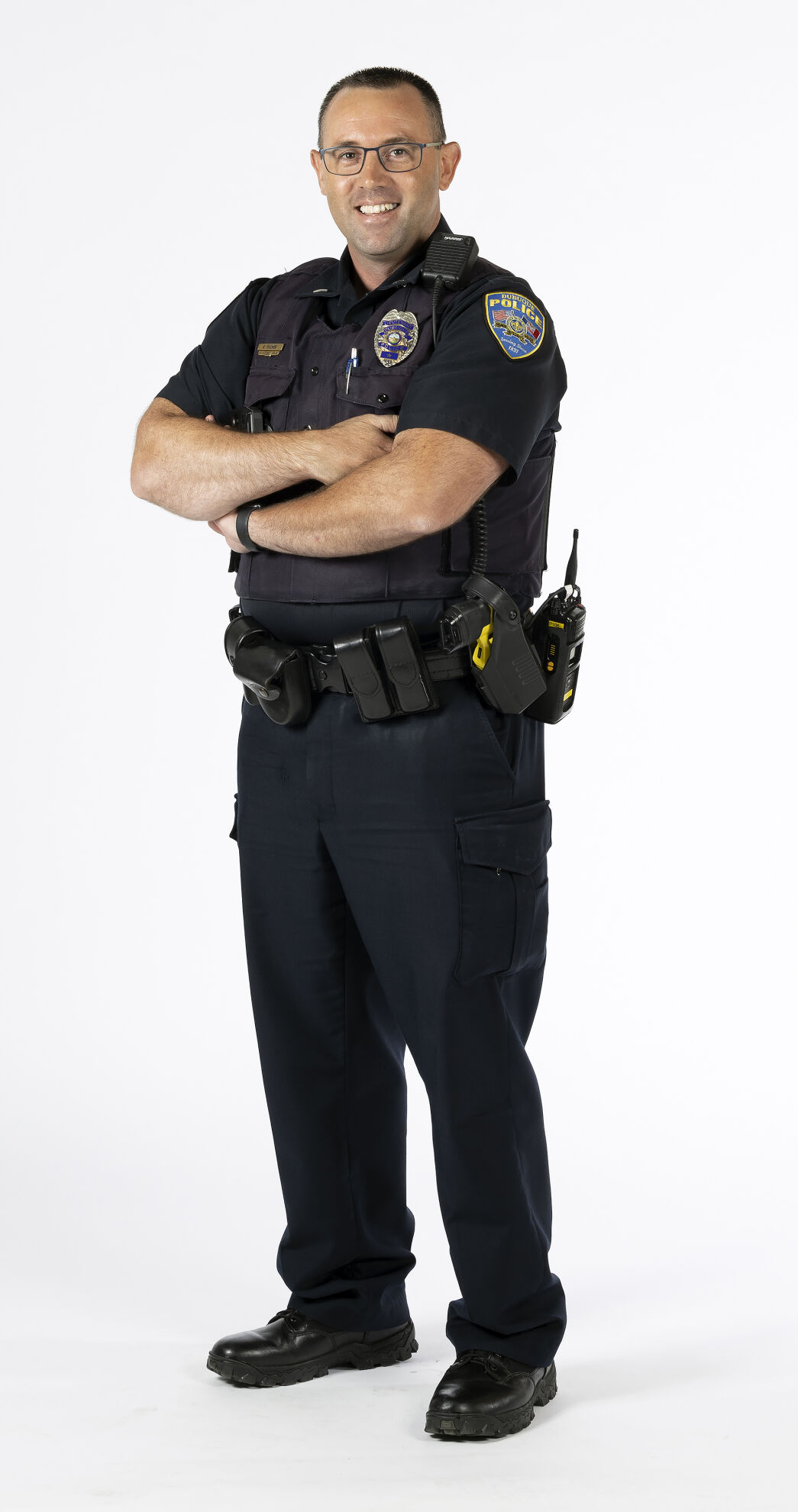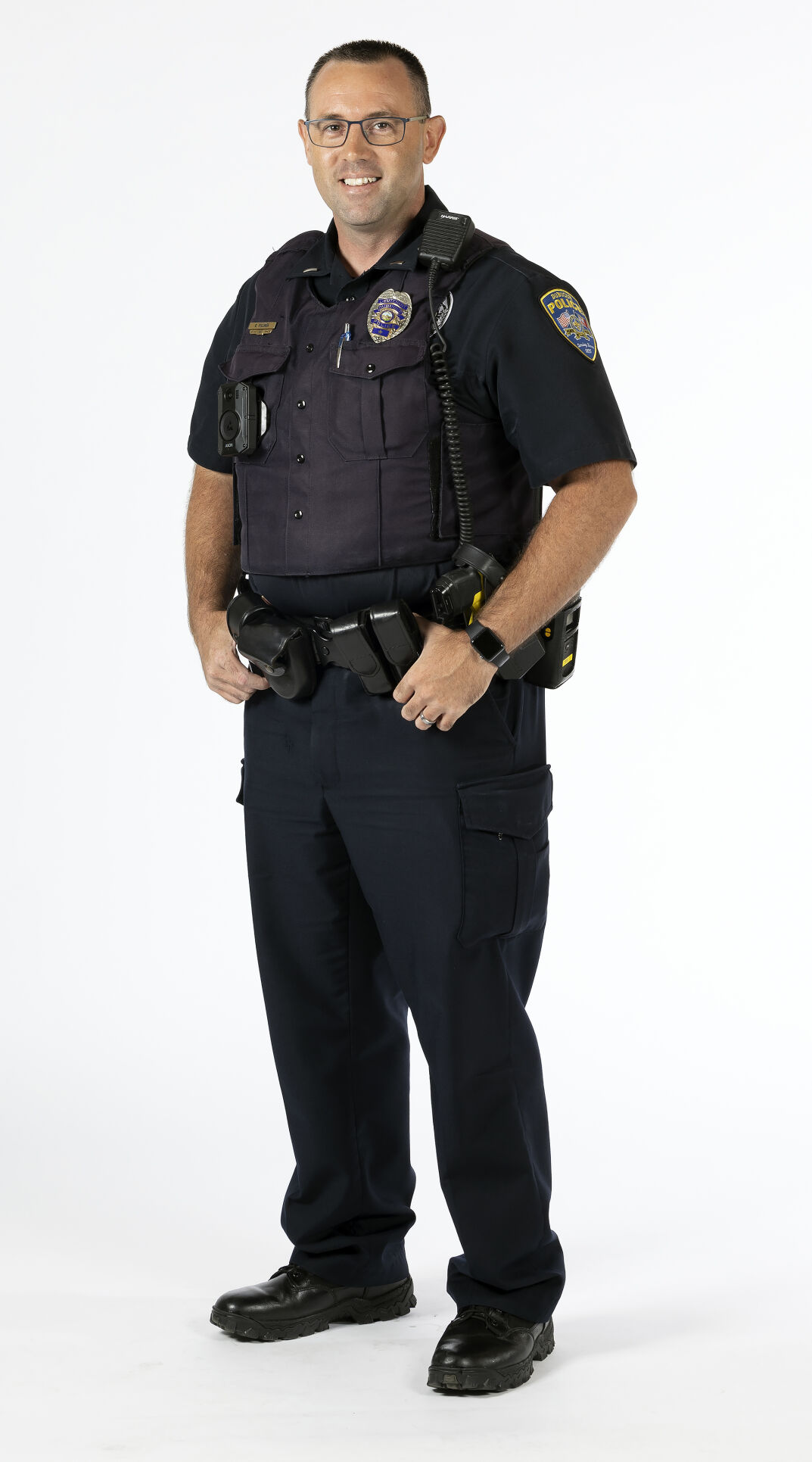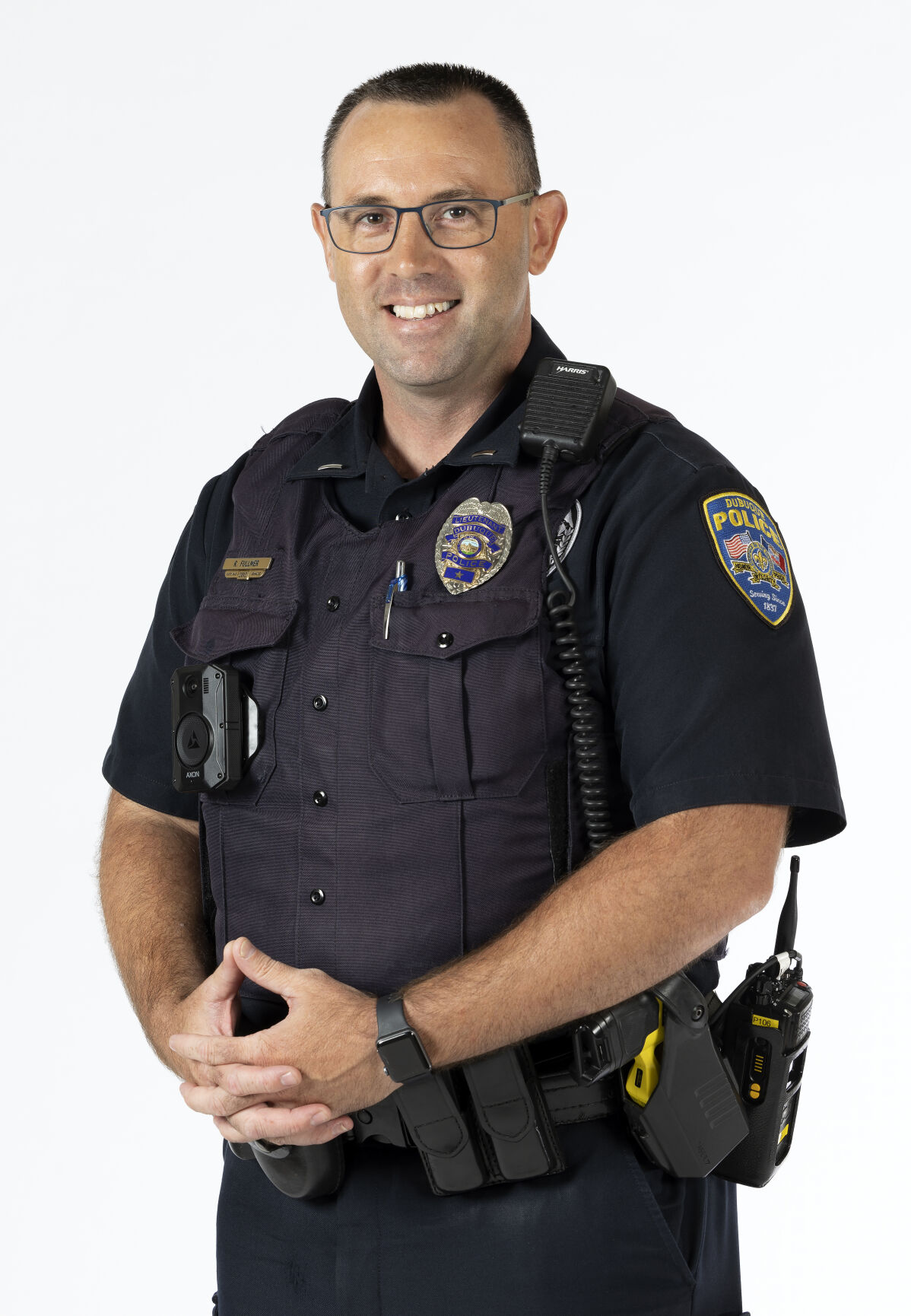Age: 36.
Job title/occupation/place of employment: Lieutenant, Dubuque Police Department.
Volunteer activities: Board member, Two by Two Character Development and board member, Iowa Crisis Negotiators Association.
Education: B.S. in criminal justice from University of Wisconsin-Platteville; M.A. in communication from University of Dubuque; emotional intelligence coaching certification, Six Seconds.
Family: Husband, Michael; dogs, Tank and Seamus; and cat, Chloe.
Person most inspirational to me and why: My two grandmothers. They’re great: A combination of grace, kindness, grit, determination and resilience. They always provide sound advice, much needed reassurance and the occasional reprimand followed up with a lesson. I would be a much different person if I didn’t have their guidance.
Favorite thing to do outside of work: I started fishing recently and I really enjoy it.
One word to describe me: Determined.
What’s one thing that most people would be surprised to know about you: I’m incredibly shy.
Greatest fear: Heights and spiders.
What’s the one thing you are most passionate about in your life: Teaching and learning. I live for those “lightbulb” moments.
Rick Fullmer has been a police officer with the Dubuque Police Department since 2012. He was promoted to lieutenant in 2020, and is a patrol supervisor as well supervising the department’s crisis negotiation team.
Assistant Chief Joe Messerich, who nominated Fullmer for Rising Stars, said Fullmer’s passion for emotional intelligence training, his volunteer work in the community and his continuing education have made him a great leader within the department.
“He uses the knowledge he has gained to develop and deliver coaching for officers in the area of emotional intelligence and verbal de-escalation,” Messerich said.
Fullmer admits it was initially a hard sell.
“We had generations of officers thinking work is work and home is home, and never the two shall mix,” he said. “But we have to talk about it and deal with it and find the best way to manage it. Imagine walking into a room of police officers and saying, ‘OK, we’re going to talk about our thoughts and feelings today.’ It’s daunting.”
Fullmer was teaching the D.A.R.E. program at Hillcrest Family Services and knew that he needed some additional skills to reach the population that Hillcrest serves. Soon he realized that all police officers needed these skills.
“I knew we had to talk about this,” he said. “Mark Dalsing was our chief at the time, and he said it was interesting and to delve into it.”
As a result, Fullmer partnered with the University of Dubuque and Six Seconds, an organization that assists businesses in learning and practicing emotional intelligence skills to create a program for Dubuque’s police officers.
“There was nothing — nothing — on this for law enforcement,” he said. “We dove head-first into it. In the academy, emotional intelligence was something they kind of breezed over, but things are changing.”
Fullmer said the way officers are onboarded at the department now is different from the way it used to be.
“We do an emotional intelligence assessment,” he said. “I debrief them, and then we strongly encourage them to go to the psychologist once a week and work on mindfulness. By the time they hit the street, we’ve talked about emotional intelligence and mindfulness. That’s huge for us. That doesn’t happen in many places.”
Fullmer also serves on the board of Two By Two Character Development, as well the Dubuque Community School District’s Community Education Equity Advisory Committee. He serves on the executive board of the Iowa Crisis Negotiators Association and also heads up the department’s Police Explorer program.
“(Rick) is an excellent role model for the Explorers who participate in the program,” Messerich said. “He’s worked hard with his staff to put on a great program for the youth of Dubuque are who are interested in law enforcement.”
Fullmer’s work in the area of emotional intelligence within the police department and the community is making an impact.
“The city has received a lot of training, and the school district has done a lot of training,” he said. “It has become a movement, and it’s taken off like a rocket.”





